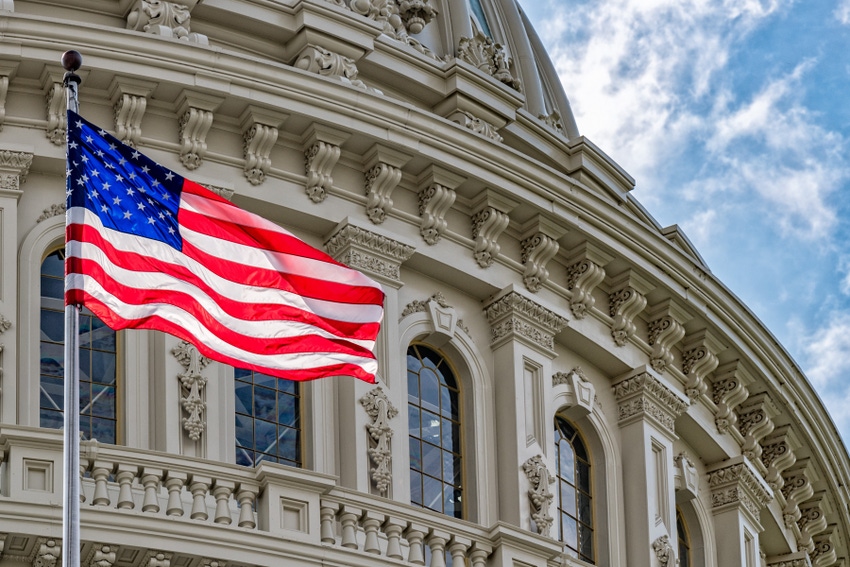Seven items could limit liberty for supplement makers.

One of the leading supplements critics is the Center for Science in the Public Interest. CSPI’s profile has heightened because its board chairman is former U.S. Food and Drug Administration commissioner David Kessler. He has never been a fan of supplements, having testified against passage of the 1994 Dietary Supplements Health and Education Act (DSHEA). And Kessler has been selected by President-elect Joe Biden to sit on his COVID task force. And is also apparently on the short list for FDA commissioner in a Biden administration.
While Kessler in at FDA would not exactly help the supplements cause from a regulatory standpoint, it’s important to note that the last handful of past commissioners have been unanimous that they would like to see changes in DSHEA, and that has not happened.
At a post-election webinar on Tuesday, Nov. 10, American Herbal Products Association (AHPA) president Michael McGuffin said that Kessler “will be influential” regardless of whether he takes the top spot at FDA or not. Importantly, McGuffin offered the best strategy to dealing with a Kessler FDA.
“We need to engage with his staff,” said McGuffin. “We need to understand his concerns and let him know if these have been addressed in the last 26 years.”
At the same webinar, Pete Evich, vice president at Van Scoyoc Associates, laid out what he called the “DSHEA critics agenda” that he said could well play itself out under the next administration. These include:
Mandatory product registration. This may stand the best chance of passage because a number of supplement trade groups have embraced the concept. This is led by the Council for Responsible Nutrition, which began the Supplement OWL—Online Wellness Library—as a self-regulatory initiative to list all products on the market (or at least those willing to participate). The OWL provides a product image, supplements facts information, and other info on ingredients, dosage form, serving size, categories of use, product claims, contacts and other information. It could be a model for the FDA’s desire to have a product registry.
Close the GRAS self-affirmation “loophole.” Besides ignoring it altogether, the easiest way to get around filing New Dietary Ingredient (NDI) dossiers is to instead to the GRAS route. There are two ways of doing this. One is to file a GRAS dossier with the FDA and await a “no objection” letter from the agency. The other way is to conduct a “self-affirmation” GRAS filing. It’s about the same thing, only a company’s toxicology team it assembles declares an ingredient safe and not the FDA. Some see this as the loophole under the thinking that a self-affirmed GRAS team might not be quite as diligent as the FDA.
State AGs empowered. Congress authorizes state attorneys general to enforce federal dietary supplement laws. State-level AGs have flexed their muscles in lieu of the federal agency. The infamous New York attorney general sting operation of 2015 was just such an instance. The notable conclusion to that action was the widely criticized manner in which the NYAG went about its operation, using DNA testing but no follow-up chemical analysis such as HPLC to validate the clear limitations of DNA tests. Would the FDA have been so slipshod?
Targeting high-risk categories. The big three here are sexual performance, weight loss and muscle-building supplements. These have a troublesome history, thanks to questionable ingredients including pharmaceuticals. The goal here is a pre-market product testing and audits of products in this category.
Labeling supplements that interact with pharmaceutical drugs. There is some contention over this because it is emblematic of the battle between drugs and supplements. That is to say, why is the onus on supplements to pronounce which pharmaceuticals it interacts with, instead of drugs having warnings about how its efficacy can be altered in the presence of food ingredients?
Mandatory reporting of non-serious AERs. Adverse events reporting began in 2009 when the FDA issued a guidance under the Dietary Supplement and Nonprescription Drug Consumer Protection Act. These are to be submitted to the FDA within 15 days of receipt. This is usually when a person is hospitalized. Including non-hospitalized, “non-serious” events raises the bar on supplements and would no doubt give the illusion of supplements being a non-safe category of consumer products.
Deadline to complete NDIs. In 2011 and again in 2016, the FDA deigned to issue a rule on NDIs. Both were roundly criticized by the supplements industry, the second one even by a strongly worded letter from DSHEA co-author Utah Senator Orrin Hatch. While the FDA never exactly pulled the rules, it didn’t exactly say they would stand either. The current thinking in the industry is the FDA has continued as if its second document is the way the agency sees things, Hatch’s letter notwithstanding. However, the FDA has hardly been an enforcement agency around this issue. What could happen now? Will the FDA try a third time? This is “a likely development,” according to Evich. “In a Biden FDA we may see a re-issuance of that.”
How many—if any—of these will actually happen? Time will tell. The thin Congressional margins, with Democrats narrowly holding the House and Republicans seeming to narrowly hold the Senate, will make any legislation difficult. And of course, there are higher health concerns in the COVID times than dietary supplements.
“It’s a more favorable position,” said Evich, “in terms of keeping at bay anything negative movements in terms of amendments to DSHEA.”
It does seem that if the FDA comes out with any landscape-shifting rules around supplements, a higher order of business will be around hemp CBD. We shall see.
About the Author(s)
You May Also Like






.png?width=800&auto=webp&quality=80&disable=upscale)